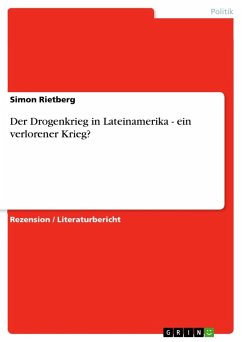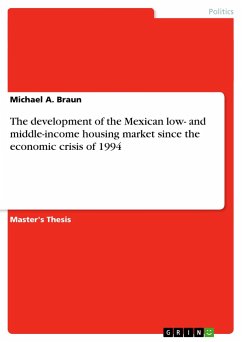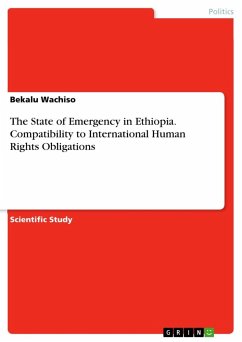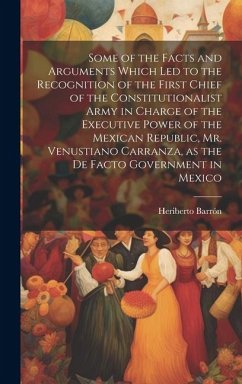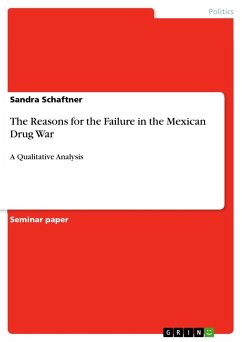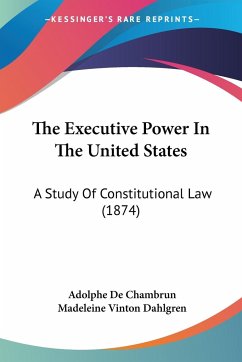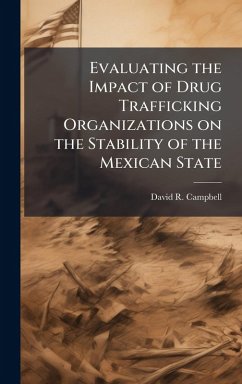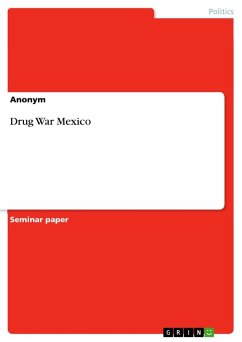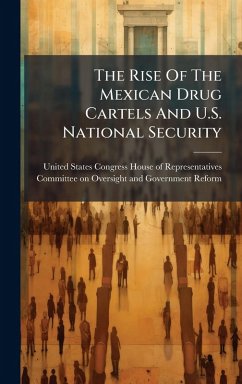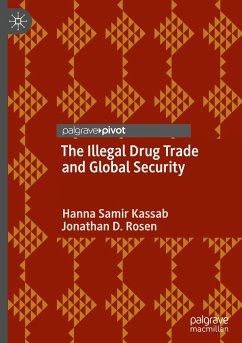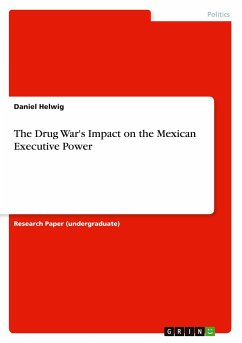
The Drug War's Impact on the Mexican Executive Power

PAYBACK Punkte
0 °P sammeln!
Research Paper (undergraduate) from the year 2012 in the subject Politics - International Politics - Region: Middle- and South America, grade: 1,0, University of Economics, Prague, language: English, abstract: Since president Felipe Calderón started his policy of "mano dura" against the drug cartels in 2006, Mexico has seen unprecedented internal violence - with the total number of casualties having exceeded 45.000 in 2011. Assuming that the Mexican conflict is a war, subsequent questions can be asked with respect to a classic of political theory. Alexis de Tocqueville observed the natural te...
Research Paper (undergraduate) from the year 2012 in the subject Politics - International Politics - Region: Middle- and South America, grade: 1,0, University of Economics, Prague, language: English, abstract: Since president Felipe Calderón started his policy of "mano dura" against the drug cartels in 2006, Mexico has seen unprecedented internal violence - with the total number of casualties having exceeded 45.000 in 2011. Assuming that the Mexican conflict is a war, subsequent questions can be asked with respect to a classic of political theory. Alexis de Tocqueville observed the natural tendency of central governments to reach out for more power in times of war. He further specified this statement by claiming that particularly the executive branch gains power in such situations. A democratic nation would be subject to this behavior, because it perceives the central executive as "the only power which appears to be intrinsically sufficiently strong, enlightened, and secure, to protect [it] from anarchy." Here, the Mexican case provides the analyst with further particularities. Not only follows the country's executive the logic of presidential system, but also is it still on the democratic recovery from a long-term authoritarian one-party-rule. This paper briefly examines the drug war's impact on the Mexican constitutional reality and thus aims at answering the question: What effect does the conflict have on the power endowment of the Mexican executive? In order to validate the hypothesis, that the president's power is gradually strengthened, the author chose a rather linear approach. After first introducing key data about the Mexican drug war, the institutional legacies of more than 70 years of one-party-rule are discussed. With the president's power having been on decline since a process of democratization gathered pace in 2000, various aspects of today's situation are understandable only by scrutinizing the consequences of previous "arrangements" between the ruling party and the drug traffickers. The paper's third part is dedicated to examining the executive's endeavors to extend its powers via the use of federal forces out of their original jurisdiction as well as via the creation of states of emergency without legal basis - both with dire consequences for the constitutional order of the Mexican state. Finally, the findings are summarized and the conclusion is drawn that the militarized law enforcement notably has power-shifting effects on the Mexican decision-makers and may complicate the further consolidation of the nation's democracy.




